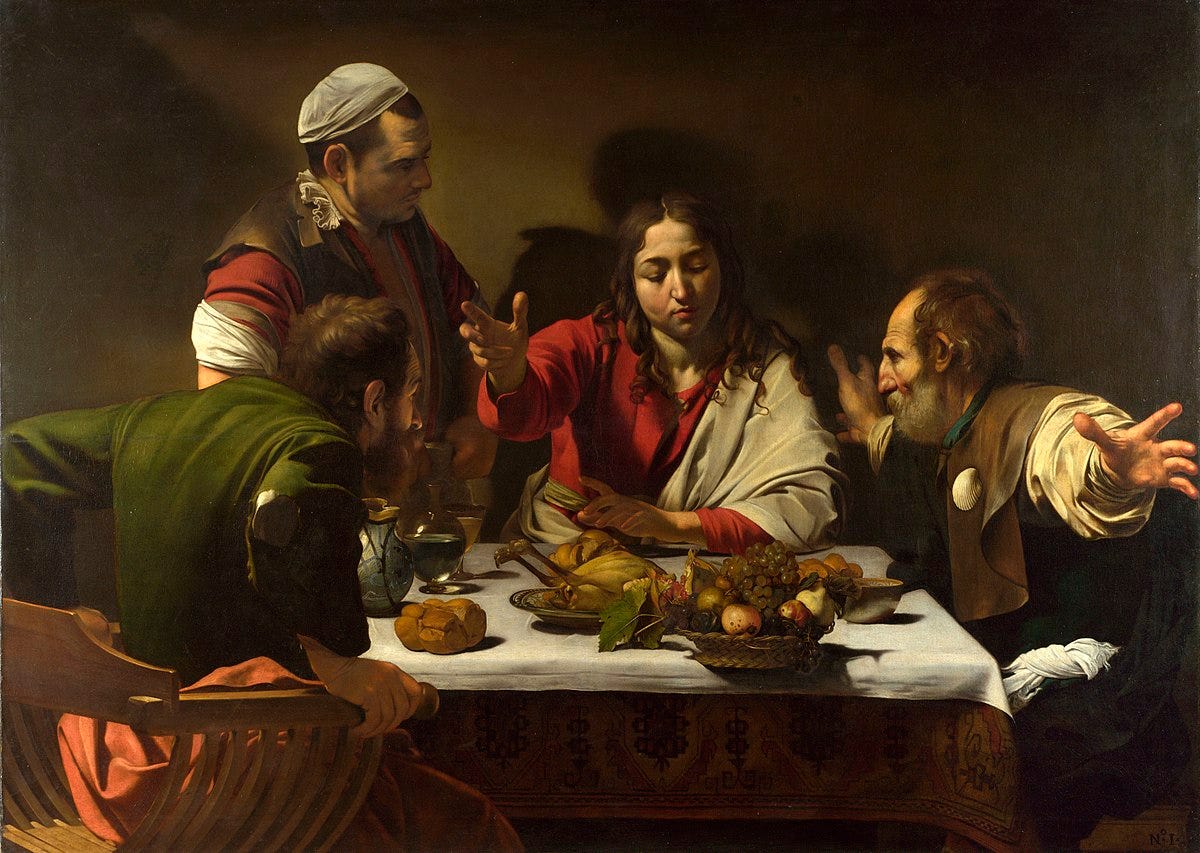That is the shape of a postliberal apologetic strategy: it is a wager of outnarration. - James KA Smith
Much of Christian apologetics (the defense of one’s faith) today is proof-driven. Let me explain why God is real. Let me tell you why the Bible is true. Let me convince you that your religion is wrong and mine is right.
This type of evangelism is a product of (and reaction to) modernity, which prioritizes knowledge of what something is over how it functions. Apologetics today leads with “here is what Christians believe about X, Y, and Z” instead of “here is how Christians act. Here is what our community looks like. Here is how we act and move differently in the world because of Jesus.”
But what if our Christian witness was reframed as the latter? What if apologetics looked less like a lecture or debate and more like an invitation into a community of practice?
In his cultural-linguistic proposal, the great Yale theologian George Lindbeck argues that participating in a religious community is akin to learning a language: “To become a Christian involves learning the story of [ancient] Israel and of Jesus well enough to interpret and experience oneself and one's world in its terms.” Our communities and stories condition the language we use, infusing words with meaning, purpose, and consequence.
If understanding a religion involves becoming skilled in a language, then attempting to tell those outside our community what we believe is pointless. This is not to diminish the intellectual capabilities of the listener, but instead to say that all language and meaning are deeply contextual. Think of common language that Christians use like“Jesus died for your sins,” or songs that repeat lines like, “O come to the altar / The Father's arms are open wide.” Within a Christian community, these are common place, but take them to your local dive bar and you’ll soon be shown the door.
How, then, can we help others make sense of this language? One answer—a convincing one, I think—is by telling a story of who we are. James KA Smith says it well in his book Who’s Afraid of Relativism:
"Consider the Christian story," we suggest to our neighbor. "Tell me if this helps makes sense of your world of experience. Here's a Christian account of who we are and whose we are and where we've come from and what we might hope for, all bound up with the story of God in Christ reconciling the world to himself. Does that do a better job of making sense of the world than the other accounts you've 'tried on'?”
Telling a story, though, is far more complicated than stating a presumed fact. “Darth Vader is Luke Skywalker’s father” is a fact. The Empire Strikes Back is a story. “Moby Dick is a whale” is a fact. “Call me Ishmael” begins a story. “Jesus is God” is a fact. “The kingdom of heaven is like…” is a story that echoes eternally through the cosmos.
Approaching apologetics as storytelling is not an easy three-step evangelization tactic that you can learn in a youth group “bootcamp.” It cannot be broken down into a decision-making flowchart. This approach also does not bode well for the consumerist “you have a Jesus-shaped hole in your heart” approach. We do not presume a need and then meet it, nor do we catch people in moments of emotional or spiritual vulnerability and capitalize on it. Instead, we offer a compelling, meaning-making story of the world and God.
Lastly, an invitational approach to Christian witness pushes us away from individualistic, “me and Jesus” approach to Christianity. The invitation we offer is into a community of language-speakers. Again, Lindbeck is helpful. He explains that learning a language on our own can only take us so far—we might learn the rules of grammar, a robust vocabulary, and textbook sentences structure. But language can only truly be learned in context and immersion:
"To the degree that religions are like languages and cultures, they can no more be taught by means of translation than can Chinese or French. What is said in one idiom can to some extent be conveyed in a foreign tongue, but no one learns to understand and speak Chinese by simply hearing and reading translations."
Bearing witness to God’s action in the world requires far more than asserting propositions of God’s nature or Jesus’ divinity. Instead, it demands that we grasp the story of Christianity so personally and intimately that we are able to share it honestly and uniquely, testifying to God’s action in the world and in our lives. This, I am convinced, is a story worth telling.
Reading:
Rubem Alves, The Poet, The Warrior, The Prophet
Aimee Byrd, The Hope in Our Scars
Watching:
Your Honor (Netflix)
House of the Dragon (HBO)







YES! I love this. It sparked a memory of some notes I took during a class taught by Dirk Smit. I just looked them up. They're related to this topic:
"The truth about a person is more than just propositions. It is more than the historical fact. Personal truth adds richness. You can write a biography about who someone was by writing what they did and still barely capture who they were. The truth about God and about Christ is a living truth, a personal truth…'I am the way, the truth, and the life'.
It is not wrong that different people experience Christ in different ways. It is wonderful. It is mysterious, complex, and rich."
The James KA Smith quote (and this whole post) meets me where I'm at in a refreshing way. Thanks for the post, Amar :)